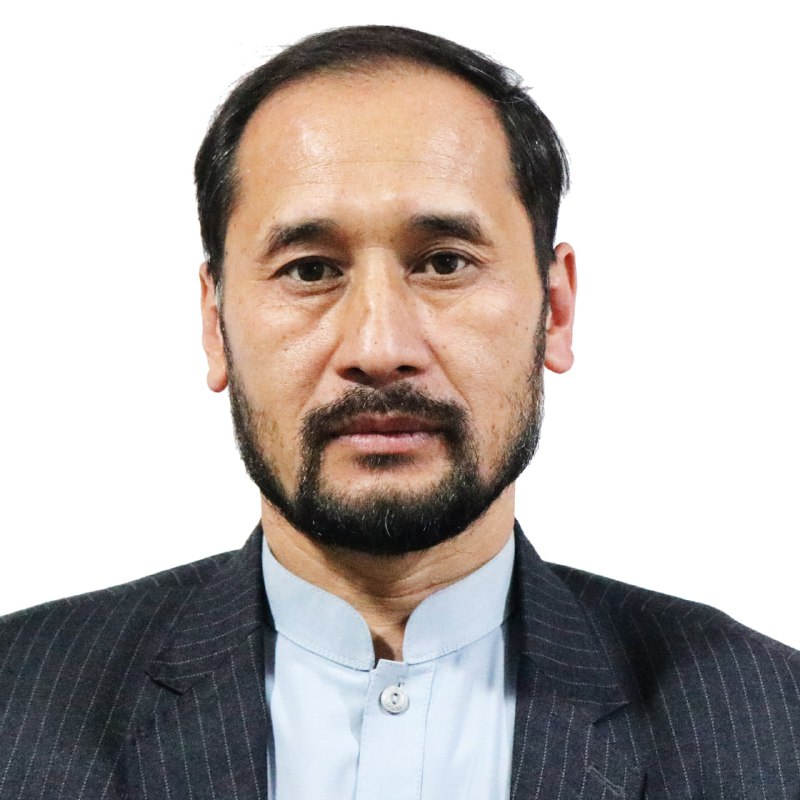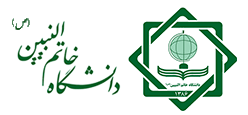Cultural Affairs Directorate

Dr. Ali Reza Naseri
Academic Qualifications
- Ph.D in Islamic Philosophy, Qom, Iran (2015);
- M.A in Islamic Philosophy, Qom, Iran (2006);
- B.A in Islamic Culture & Education, Qom, Iran (2000).
Professional Experience
- Lecturer at Khatam al-Nabieen University (Kabul & Ghazni, 2012-Present);
- Lecturer at Al-Mustafa University, Kabul (4 years);
- Lecturer at Khatam al-Nabieen Seminary, Kabul (3 years);
- Lecturer at Ghazni Technical University (1 year);
- Lecturer at Entezar Scientific Complex, Kabul (3 years);
- Head of General Studies Department, Ghazni Branch (2014);
- Research Director, Ghazni Branch (2015-2019);
- General Studies Director, Ghazni Branch (2020);
- Cultural Director, Khatam al-Nabieen University, Kabul (2024-Present).
Scientific Publications
- “The Crisis of Spirituality in the Contemporary Era”, selected at the Sheikh Tusi International Festival, Iran, 1999;
- “The Conflict Between Reason and Revelation from the Viewpoints of Ibn Taymiyyah and Allama Tabataba’i”, Tolou’ Research Journal, Iran, 2015;
- “Reason and Rationalism”, Pegah-e Andisheh Scientific Journal, Iran, 2010;
- “Takfir Ideology: A Barrier to Peaceful Coexistence”, Pegah-e Andisheh Scientific Journal, Iran, 2013;
- “The Role of Exemplary Figures in Religious Education”, Pegah-e Andisheh Scientific Journal, Iran, 2009;
- “A Study of Ethical Concepts and Propositions”, Andisheh Khatam Journal, Ghazni, Afghanistan, 2014;
- “Medical Ethics from an Islamic Perspective”, Andisheh Khatam Journal, Ghazni, Afghanistan, 2015;
- “A Critical Analysis of Rational Dualism”, Andisheh Khatam Journal, Ghazni, Afghanistan, 2020;
- “The Relationship Between Piety and Knowledge”, presented at Alawi Wisdom International Festival (First Place), Iran, 2007;
- “A Study on the Relationship Between ‘Ought’ and ‘Is’”, presented at Sheikh Tusi International Festival (Third Place), Iran, 2007;
- “The Relation of Ought and Is from the Perspective of Ayatollah Mesbah Yazdi”, published in The Journal of Organizational Behavior Research, Turkey, 2020.
About the Cultural Affairs Directorate
The Cultural Affairs Directorate of Khatam Al-Nabieen University stands as a fundamental pillar of this institution, bearing a vital and strategic responsibility in steering the university’s cultural objectives. Drawing inspiration from the life-giving teachings of the Holy Qur’an and the Prophetic traditions, this directorate strives to realize the goals of modern Islamic civilization and to strengthen both religious and national identity among the country’s intellectual generation.
The core mission of this directorate is to establish the necessary foundations for institutionalizing the values and elements of Islamic-national culture among students, faculty members, and administrative staff, thereby nurturing a committed, conscious, and responsible human resource for society and the Islamic world.
Among its top priorities are the promotion of Islamic unity and fraternity, support for cultural and artistic creativity, and the cultivation of moral and social virtues. Through diverse programs in the fields of Qur’anic studies, arts, literature, sports, and social engagement, the directorate endeavors to enrich the academic environment of the university with a vibrant cultural spirit and to pave the way for the educational and ethical flourishing of its graduates.
Mandate and Responsibilities of the Cultural Affairs Directorate
- In alignment with the university’s mission, the Cultural Affairs Directorate undertakes the following responsibilities:
- Formulating strategic cultural and educational policies to deepen and expand religious culture and national values;
- Supervising religious and cultural affairs and observances;
- Implementing effective programs to promote Islamic culture, teachings, and civilization within the university environment;
- Planning and executing motivational and cultural activities to enhance student morale;
- Collaborating with other departments to ensure the effective implementation of cultural initiatives;
- Organizing tribute ceremonies for distinguished national and international scholars;
- Developing policies and organizing festivals and exhibitions of cultural, religious, and national significance;
- Holding religious ceremonies, including commemorations, religious festivals, and national observances;
- Hosting cultural seminars;
- Organizing academic roundtables and broadcasting them through media outlets;
- Designing and displaying religious-cultural promotional posters across the university;
- Drafting regulations, guidelines, and relevant directives and submitting them to competent authorities for approval;
- Preparing the annual budget plan for the directorate;
- Developing operational plans and annual session calendars;
- Managing and conducting sessions of the main cultural committee;
- Preparing and submitting quarterly and annual performance reports of the directorate.

